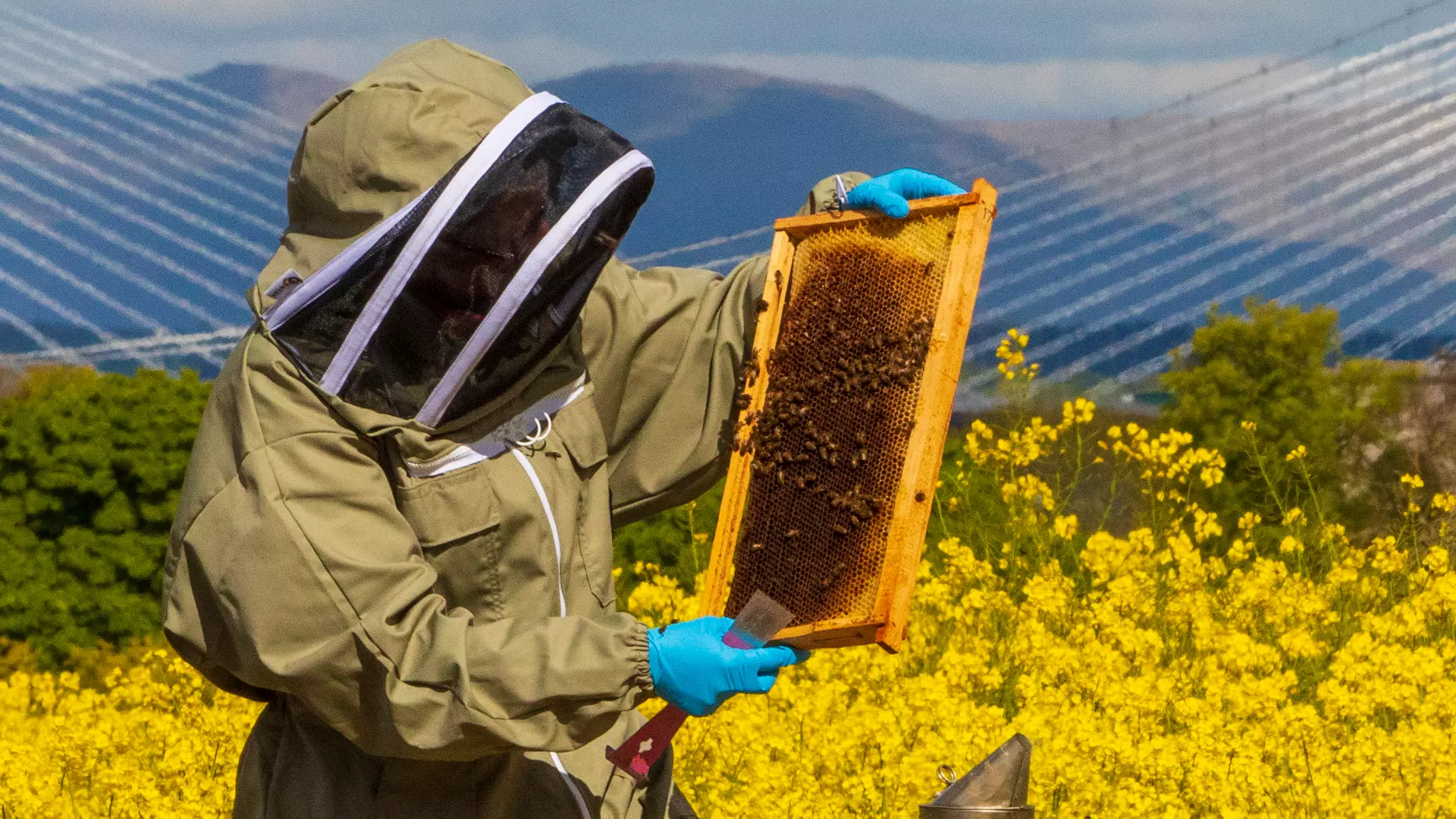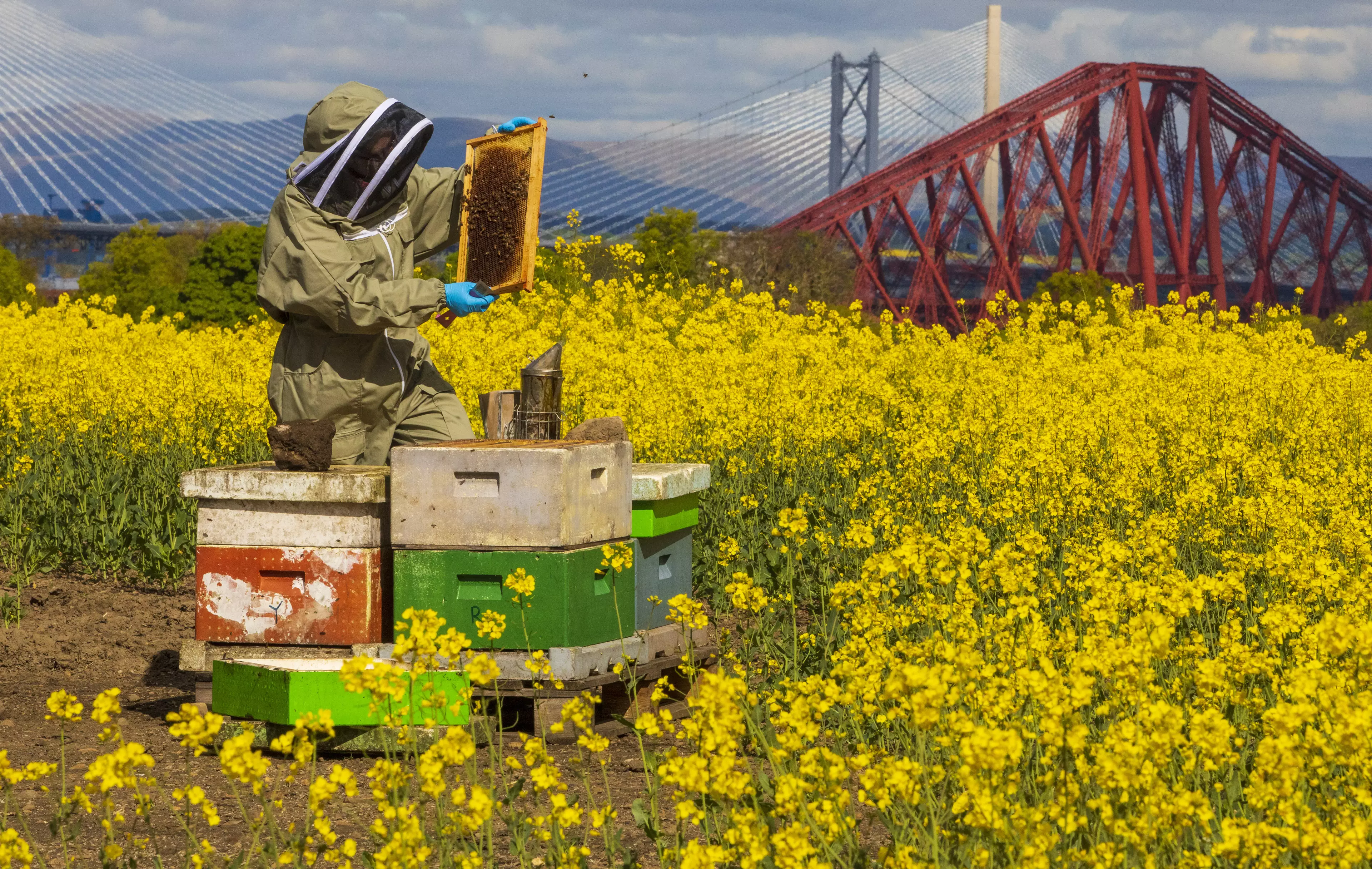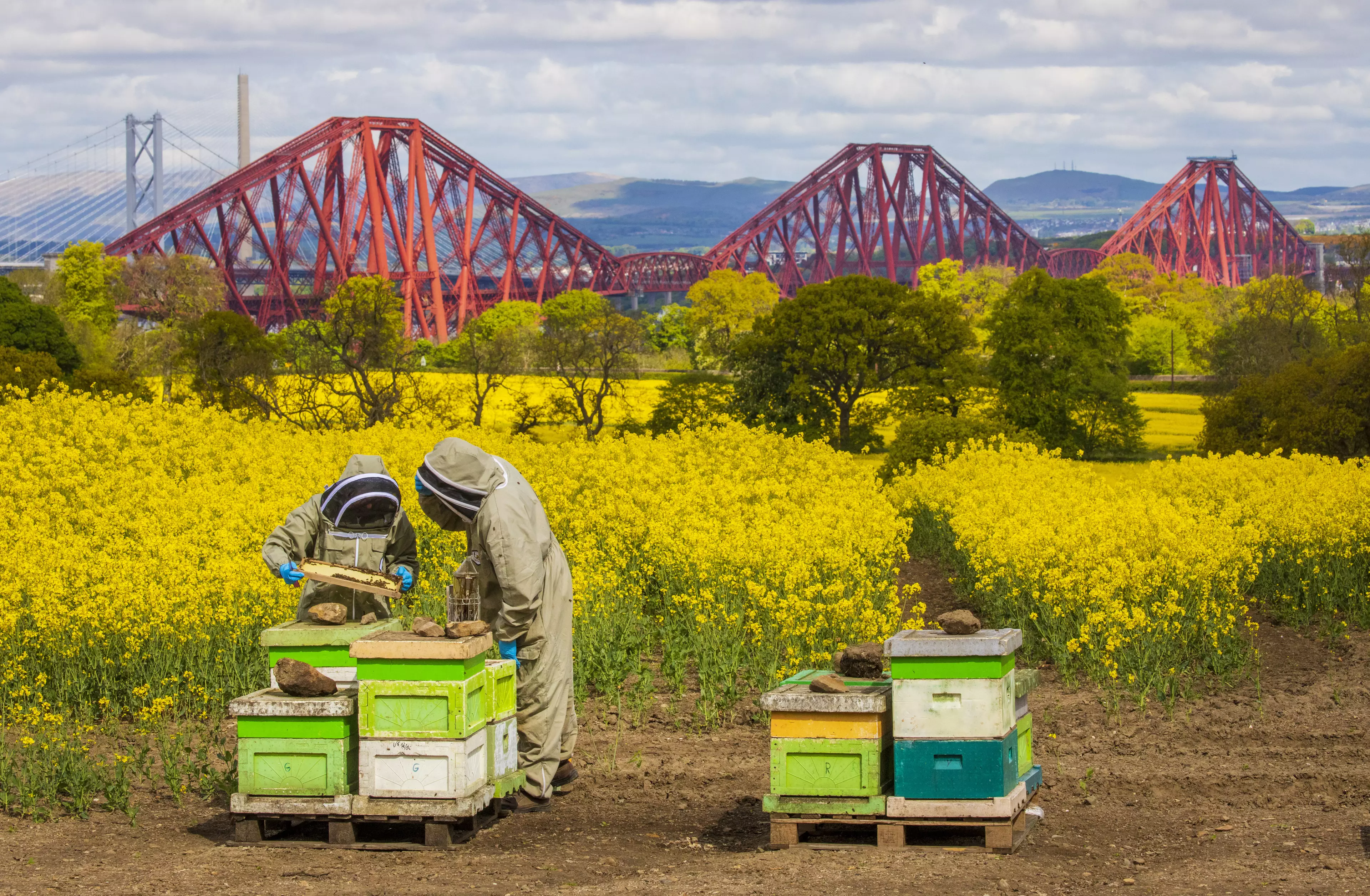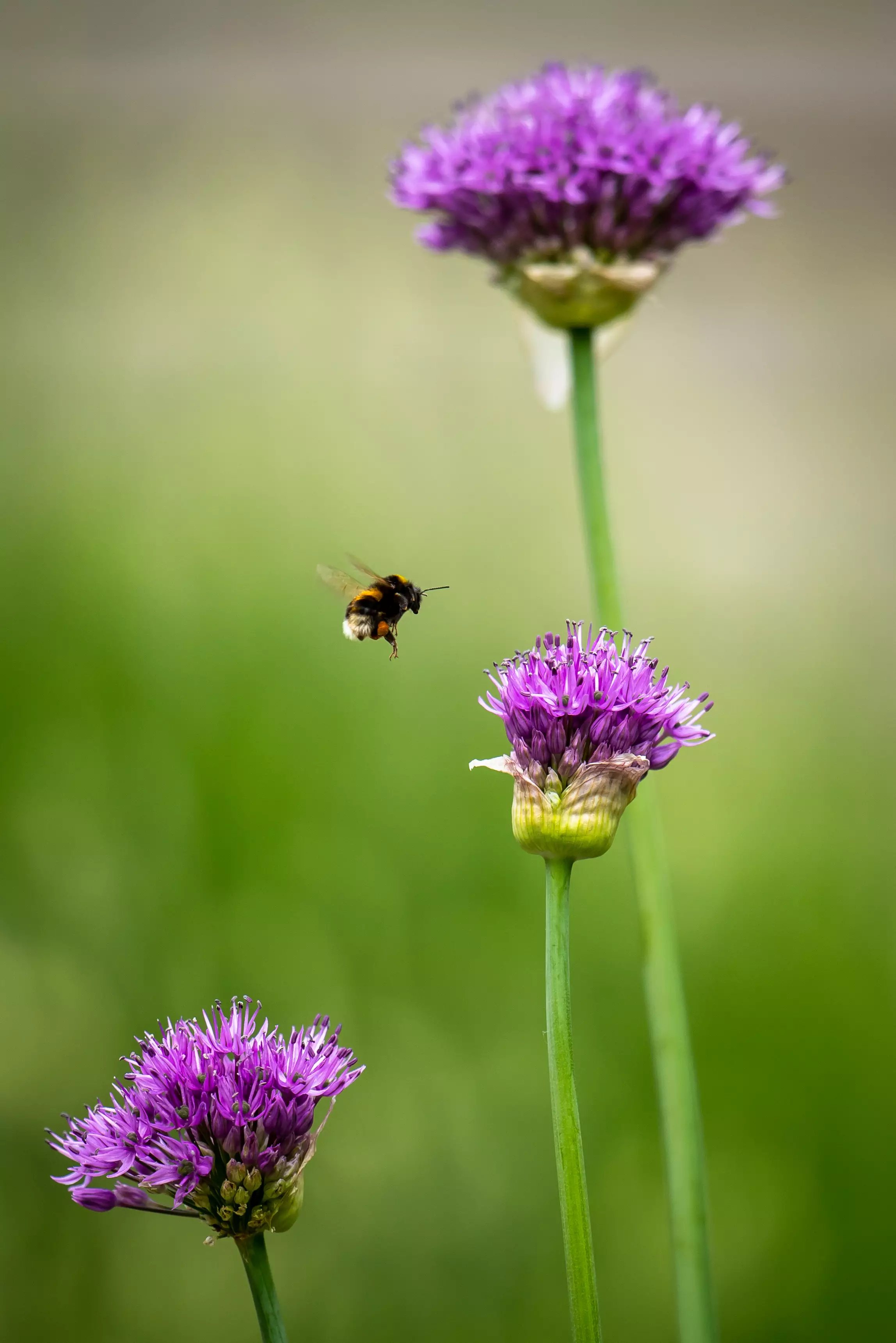
Bees have started to thrive during the coronavirus lockdown with less pollution and more people getting 'back to basics' - amid hopes that the changes could last when normality resumes.
The environmental benefits of the pandemic, with fewer cars on the roads and people shopping locally, has helped bees, according to Britain's biggest bee farm.

Beekeeper Helen McGregor, 43, believes the current situation has made people more aware of nature.
Advert
Her family have owned their business Denrosa Apiaries in Coupar Angus, Perth and Kinross, since the 1940s.
It is the biggest bee farm in Britain and currently has 4,000 hives, each filled with around 50,000 bees.

Helen said: "Less traffic, less pollution is bound to make a difference to the environment which of course has a positive knock on effect for bees. Hopefully we see these changes lasting.
Advert
"I think people are more aware of what's going on around them and in the countryside just now because of lockdown.
"They are more aware of nature, maybe seeing hives when they are out and about and thinking more about the food they are eating and where it comes from.
"It's taking people back to their roots, making them look at what's necessary in life and what's not, it's back to a basic outlook on life."

Farmers in the area depend on the bees to pollinate their crops, and Denrosa provides beehives to help with that.
Advert
Helen's grandfather Kenneth McGregor started the business in the 1940s, when he returned from the Second World War.
Kenneth died in 2016, aged 96, but passed the business on to his son Murry, 65.
It now has hundreds of sites across the UK with four or five teams checking six sites a day.
Mum-of-two Helen said: "We have hundreds of sites from down in England, all the way up to Aberdeenshire, with billions of bees. A lot of farmers are looking for bees to help with crop pollination.
Advert
"We have mini hives which we use to build up bee levels and we breed our own queen bees.
"It's very early in our season to say what production is going to be like but the bees are busy bringing back nectar and pollen.
"We are at the mercy of the weather and could do with some rain as the ground is very dry."
Three cheers for the bees...
Featured Image Credit: SWNSTopics: Environment, Coronavirus, Animals